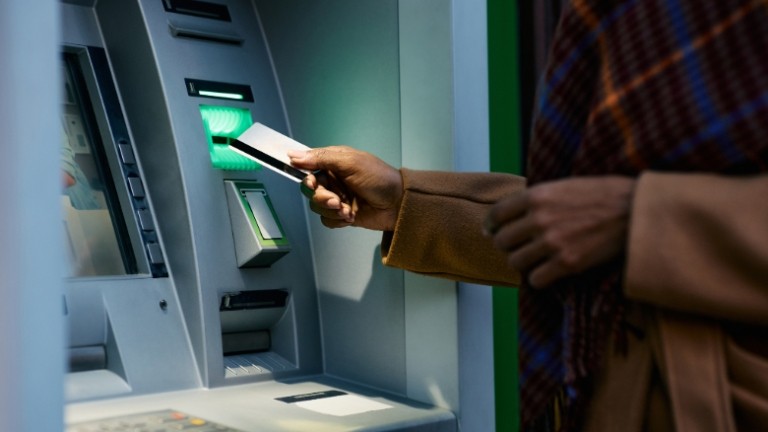Deposit accounts guide: Which one is right for me?

Your long-term financial health isn’t just about how much money you make or what you spend it on. No matter where you’re at in life or what your income level is, the key to financial wellness is to match your money goals with the right tools to help you get there.
With many different financial accounts to choose from, it can be difficult to determine which ones you need and which ones can help you get where you want to go. Whether you’re just getting started or making a mid-life course correction, this guide can help you sift through the options and gain some clarity around which account might be the best fit for you.
Start with a plan
Before you open any new accounts, start by making sure you’re clear on what your financial goals are:
- Are you working to get out of debt?
- Saving up for a down payment on a home?
- Preparing for retirement?
- All of the above?
Identify both your short-term and long-term goals, and list them in order of priority.
Once you know what you’re aiming for, the next step is to assess what you need most in a financial institution. Choosing where to put your money is a bigger decision than you might think. It affects everything from what tools you have at your fingertips to how much interest your money will earn over the course of your life.
For example, while interest rates rise and fall over time, credit unions have consistently offered higher interest rates on money deposits than banks. A difference of even a single percentage point adds up over time, so it’s important to choose a financial partner that will prioritize your financial well-being over profits.
Assemble your toolkit
There’s more to banking than just opening a checking and a savings account. For starters, not all accounts are the same. Some require minimum balances or charge different fees. Some keep your money easily accessible, while others tie it up for a period of time. Some pose a higher risk but offer potentially greater rewards.
Even if you think you already have all the accounts you need, it’s wise to assess them periodically and determine whether it might be time for an upgrade. If you’re an OCCU member, our team can work with you either in-branch or online to help you decide which options might work best for you.
Here’s a look at some of the different types of deposit accounts to consider:
Checking
Your checking account serves as the central hub for most of your financial activity. Choose an account that’s supported by plenty of tools and options that make accessing and managing your money as easy as possible — whether that means a large network of surcharge-free ATMs, a user-friendly mobile banking app that helps you effortlessly monitor your spending, or the ability to easily transfer funds from one account to another.
Here are some questions to ask when selecting a checking account:
- How much money will I regularly keep in my account?
- How much will it cost if I overdraw and are there tools to help me avoid it?
- What built-in budgeting and money management tools are important to me?
- What fees will I be charged?
- How easy is it to transfer money out of my account?
Pro tip: If you’re not already earning interest on your checking account balance, you deserve more. OCCU’s Remarkable Checking is a checking account that invests in you, allowing you to earn more interest from your actions — not just your balance.
Savings
While a checking account addresses your immediate financial needs, your savings account serves as a starting point for building toward your future goals. Your savings account should work with your checking account, providing protection against overdrawing as well as a place to grow your nest egg. Keep in mind that you don’t have to limit yourself to just one. If you’re working toward multiple savings goals at once, for example, you might want to maintain separate accounts for each.
Here are some questions to ask when selecting a savings account:
- What am I saving for?
- How do I want to access my funds?
- Can I set up automatic transfers from my checking account?
- Is there a minimum balance requirement?
- What is the interest rate?
- What fees will I have to pay?
Pro tip: You can kickstart your savings with OCCU’s Ignite Savings® account. You’ll earn a higher interest rate on the first $500 you deposit, plus competitive rates as your balance grows — and there’s no minimum balance or deposit.
CDs
Once you’ve got some savings built up — in addition to your emergency fund — you might want to consider leveling up your savings with a certificate of deposit (CD). With a CD, you’ll earn higher interest on your balance, but you won’t be able to access the funds for a period of time. You can open a CD with as little as $500, with terms ranging from 12 months to five years.
Here are some questions to ask before opening a CD:
- What are my long-term investment goals?
- How much of my savings can I live without access to?
- When will I need to access the funds?
- Should I open just one CD, or build a CD ladder?
Pro tip: You can maximize your earned interest with a CD from OCCU. Not only do we offer competitive rates, but if interest rates increase within six months of opening a 24- to 48-month CD, you can bump up your rate — and even make an additional deposit.
IRAs
You’ve considered your short-term financial goals and the milestones you hope to achieve in the coming years. But what about in the long term? You know where you want to go, but have you thought about where you want to end up?
Opening an individual retirement account (IRA) could be one of the best financial decisions you’ll ever make. A traditional IRA lets you save for retirement tax-free, allowing you to supplement your 401(k) or pension with extra income to cushion you as you age.
And if you’re self-employed or your employer doesn’t offer retirement benefits, your IRA could one day become part of your primary source of income.
Here are some questions to ask when choosing a retirement account:
- How would I like to spend my retirement and how much will I need to do that?
- At what age would I ideally like to retire?
- How much have I saved in employer-provided plans? Is retirement account consolidation an option?
- What amount am I comfortable contributing each month? How does it compare with my goal?
As you think about the type of deposit account(s) you might need, consider how each account fits into your overall financial picture. If you want to dig a little deeper, our team is available either in-branch or online to help guide you toward the right tools. By taking time to compare the options, you’re already on your way to improving your financial wellness.


